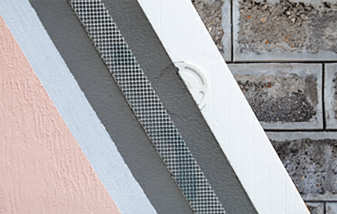
Nov . 06, 2024 02:51 Back to list
Enhancing Mortar Performance with Specialized Bonding Additives for Improved Construction Results
Enhancing Mortar Performance with Bonding Additives
In the construction industry, the quality and performance of mortar are crucial for the longevity and durability of structures. Mortar serves as the critical binding agent in masonry, holding together bricks, blocks, and stones. However, not all mortars are created equal, and their effectiveness can be significantly enhanced by incorporating bonding additives. This article explores the importance of mortars, the role of bonding additives, and their impact on construction projects.
The Importance of Mortar
Mortar functions as a composite material primarily made up of cement, water, and aggregates, designed to join masonry units. Its primary purposes include providing structural support, resisting weather elements, and allowing some degree of flexibility and movement between masonry units. The right mix of these components is essential to ensure that the mortar can withstand stresses without cracking or disintegrating over time.
However, traditional mortar mixes can sometimes fall short in performance, particularly under challenging environmental conditions or when dealing with porous materials. This is where bonding additives come into play.
Understanding Bonding Additives
Bonding additives are specially formulated substances that are integrated into the mortar mix to enhance its adhesive properties and overall performance. These additives can be polymer-based, organic, or inorganic, and they serve various functions depending on their chemical composition.
1. Increased Adhesion One of the primary benefits of bonding additives is their ability to significantly increase the adhesion of mortar to various substrates. This is particularly beneficial in applications where traditional mortar might struggle to bond effectively, such as when working with porous or low-suction materials.
2. Improved Flexibility and Elasticity Many bonding additives improve the flexibility of cured mortar. This characteristic allows mortars to accommodate slight shifts or movements in masonry structures, which is essential in areas prone to thermal expansions or ground movements.
mortar bonding additive

3. Enhanced Water Resistance Certain bonding additives increase the water resistance of mortar, making it more suitable for wet environments or exterior applications. This property is vital for preventing damage from moisture absorption, which can lead to weakening and degradation over time.
4. Faster Setting and Curing Time Some additives can also accelerate the setting and curing time of mortar, allowing for quicker construction schedules and reducing downtime on job sites.
5. Improved Workability Bonding additives often enhance the workability of mortar, allowing for easier application and manipulation. This can help achieve better finishes and reduce labor costs.
Applications of Bonding Additives
The use of bonding additives is widespread across various construction applications. They are commonly used in
- Brick and Block Masonry Enhancing bond strength in traditional masonry construction. - Repair Work Improving the adherence of repair mortars to existing surfaces, ensuring longevity and stability. - Tile Installation Providing better adhesion in tile settings, especially in wet areas like bathrooms and kitchens. - Stone Veneer Applications Ensuring proper bonding to various substrates, preventing stone displacement.
Conclusion
In conclusion, mortar is an essential component of masonry construction, and its performance can be significantly enhanced by incorporating bonding additives. These additives not only improve adhesion but also contribute to flexibility, water resistance, and overall workability. As the construction industry continues to evolve, the integration of advanced materials like bonding additives will undoubtedly play a pivotal role in developing more durable and efficient masonry systems. When selecting mortar for a project, considering the inclusion of bonding additives can lead to superior results, ensuring the longevity and resilience of masonry structures in a variety of conditions.
-
tile-bonding-additives-for-stronger-bonds
NewsAug.22,2025
-
construction-grade-rdp-for-wholesale-needs
NewsAug.22,2025
-
trusted-wholesale-hec-partners
NewsAug.22,2025
-
hec-solutions-for-industrial-excellence
NewsAug.22,2025
-
construction-additives-need-hpmc-essentials
NewsAug.22,2025
-
hpmc-versatile-cellulose-ether-for-industries
NewsAug.22,2025







